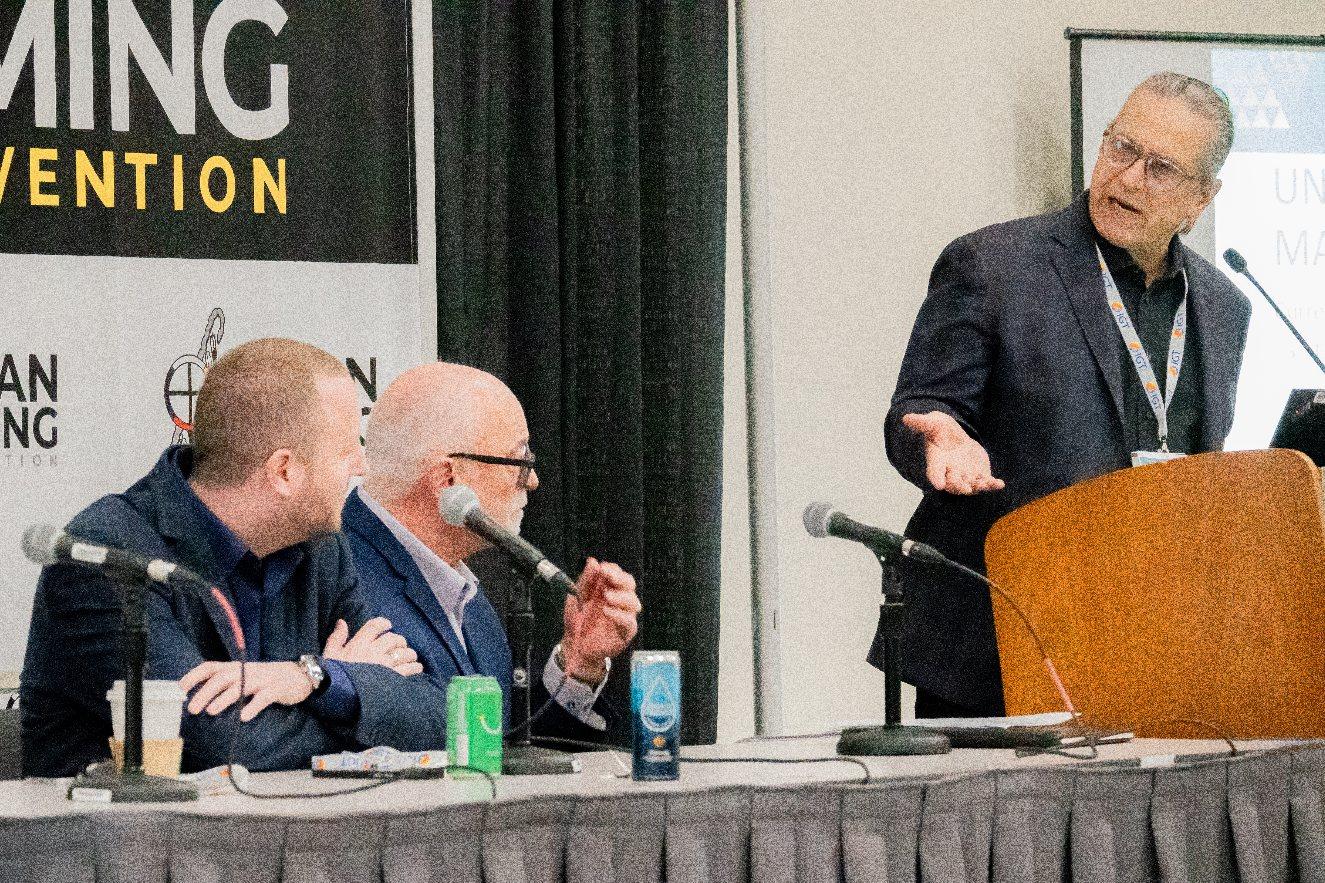IGA: Tribes and commercial gaming operators must pay attention to illegal operators

According to Victor Strategies’ Executive Vice President Gene Johnson, the gambling industry is under siege.
During Tuesday’s session “Bringing Down the Hammer on Sweepstakes and Other Illegal Gaming Activities” at the Indian Gaming Association Tradeshow and Convention in San Diego, Johnson spoke of a wave of activities, including cryptocurrency, prediction markets, illicit markets and sweepstakes that are infiltrating the gambling ecosystem.
The financial loss is tremendous. According to the American Gaming Association, the offshore operators generated $402 billion in handle during 2024 and $17.3 billion in revenue.
“There are questions about the legality, but every legislator I’ve spoken to, there’s consideration this is gambling,” Johnson said.
Johnson added that the industry is regulated by the Commodities Futures Trading Commission. The CFTC nominee to chair the commission, Brian Quintez, is an advocate of cryptocurrency and is on Kalshi, a prediction market’s board, as is Donald Trump Jr.
Legalizing these markets, Johnson added, could be a “done deal.”
Scott Crowell, a founding partner with Crowell Law Office, a tribal advocacy group, said that the CFTC is set up to enforce the law. But that aspect of the commission might be eroding.
“This is a way to circumvent state law,” Crowell said. “Lawsuits were just filed in the last several days by regulators in Nevada, New Jersey and Iowa. Parts of their individual cease-and-desist orders against Kalshi and Robinhood are for providing these support products.
“They turned around and filed lawsuits against Nevada and New Jersey. And if you look at their pleadings, their defense front and center is state law doesn’t matter. That’s literally their defense and if they get away with it, all these discussions we’ve had with various states – and I know there’s a lot of criticism here about how tribes take advantage of their political leverage to make sure we go forward with a responsible model for online sports wagering – strike that out. If you’ve created this structure on responsibly approaching gambling with strict licensing standards, regulations and controls in effect as it relates to problem gambling and underage gaming, throw all that out the window. This is a way for those operators to completely circumvent that.”
“I don’t think it’s alarmist,” Hobbs, Straus, Dean and Walker LLP Managing Partner Joe Webster said referencing Crowell’s comments. “We’re looking right now at a potential seismic shift in terms of how gaming and sports betting are regulated in this country. And if you look at what the CFTC process could lead to, I don’t think it’s limited to sports betting.”
Webster added that tribes aren’t alone in their fight against illegal operators. They have common cause with commercial gaming operators and some states seemed to be inclined investigate and take action against them.
Judy Shapiro, a partner with the Dragonfly Law Group, said Texas’s Attorney General Ken Paxton’s decision to shut down Jackpocket, the app that provided third-party courier services for lottery tickets in the state, provided a roadmap for how jurisdictions can fight illegal operators. She noted that for the state to make Jackpocket cease operations might set a useful precedent for other jurisdictions to follow.
But will other states join the fight and sue?
“You shouldn’t need an attorney general that needs to be convinced to do the right thing, to enforce the laws,” Crowell said. “The thing that I find most frustrating about the situation is the best set of tools belong to the attorney general and law enforcement. And they’re not doing their job.”
Verticals:
Sectors:
Topics:




